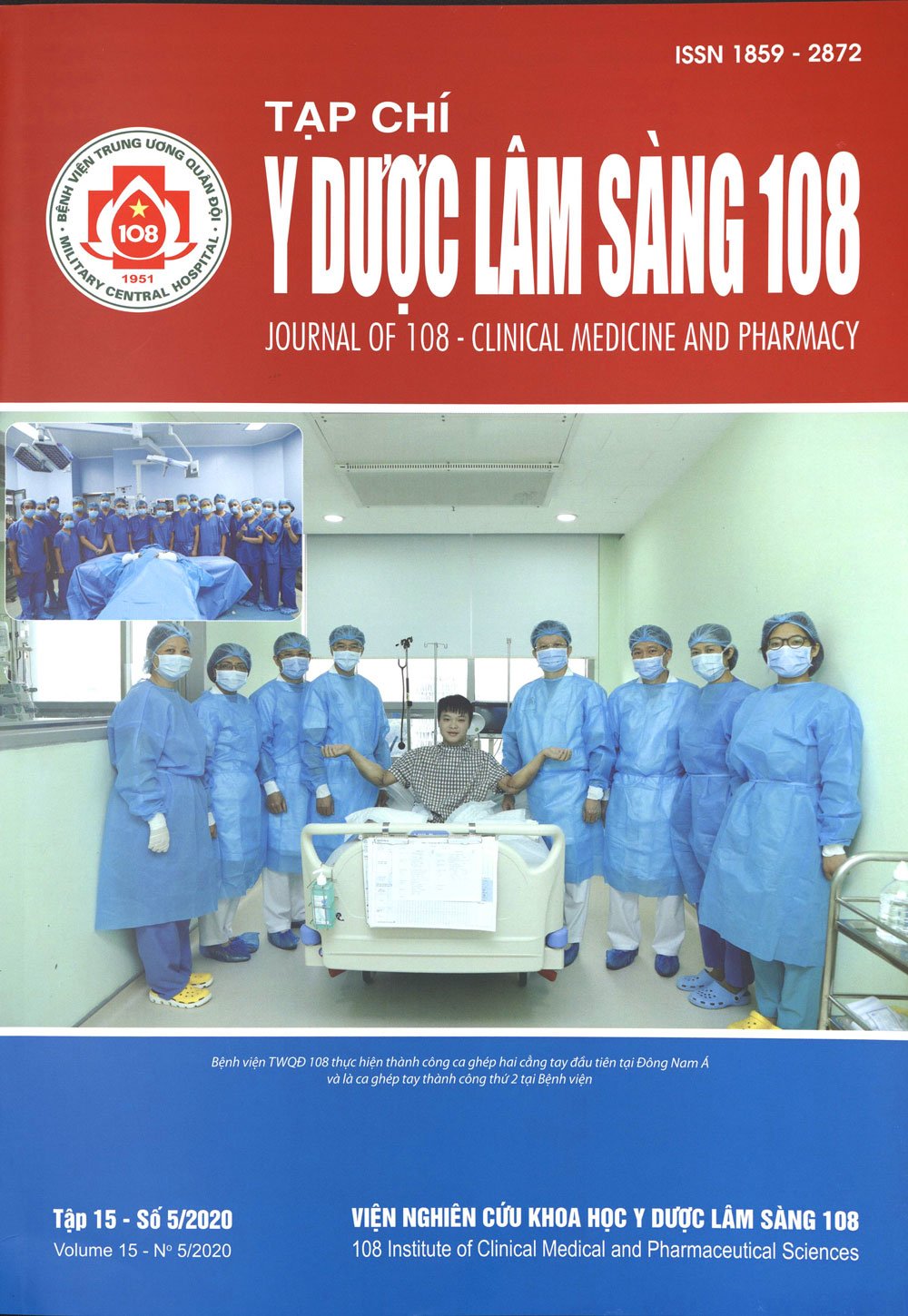Preliminary assessment of the role of procalcitonin in the orientation of stopping antibiotics in patients with ventilator-associated pneumonia
Main Article Content
Keywords
Abstract
Objective: To investigate the role of procalcitonin for reduced antibiotic exposure in ventilator-associated pneumonia (VAP) at Intensive Care Units, 108 Military Central Hospital. Subject and method: 40 patients with VAP treated at Intensive Care Units, 108 Military Central Hospital from August 2019 to April 2020, was randomly divided into 2 groups: The study group with 20 VAP was treated and stopped antibiotics when PCT was lower 0.5ng/ml or decreased 80% of peak value (PCT group) and the control group with 20 VAP was an antibiotic regimen selected by the treating physician. Result: Discontinuing antibiotics when PCT was lower 0.5ng/ml or decreased 80% of pick value, reduced the duration of antibiotic use from 11.6 ± 5.07 days (control group) to 8.7 ± 2.9 days (PCT group) but did not affect mechanical ventilation duration, ICU duration, mortality as well as recurrence of pneumonia. Conclusion: Discontinuing antibiotics when PCT was lower 0.5ng/ml or decrease 80% of peak value reduces the duration of antibiotic use but did not affect the outcome of treatment.
Article Details
References
2. Phạm Thái Dũng (2011) Nghiên cứu đặc điểm lâm sàng, cận lâm sàng, vi khuẩn và biến đổi nồng độ procalcitonin, protein C phản ứng ở bệnh nhân viêm phổi thở máy. Luận án Tiến sỹ Y học, Học viện Quân y.
3. Kalil AC et al (2016) Management of adults with hospital-acquired and ventilator-associated pneumonia: 2016 clinical practice guidelines by the Infectious Diseases Society of America and the American Thoracic Society. Clinical Infectious Diseases 63(5): 61-111.
4. Evelien de Jong, Jos A van Oers, Albertus Beishuizen et al (2016) Efficacy and safety of procalcitonin guidance in reducing the duration of antibiotic treatment in critically ill patients: A randomised, controlled, open-label trial. The Lancet Infectious Diseases 16(7): 819-827.
5. Dianna Stolz, Smyrnios N, Eggimann P et al (2009) Procalcitonin for reduced antibiotic exposure in ventilator-associated pneumonia: A randomised study. European Respiratory Journal 34(6): 1364-1375.
6. Pontet J et al (2008) Procalcitonin (PCT) guided antibiotic treatment in ventilator associated pneumonia (VAP). Multi-centre, clinical prospective, randomized-controlled study. Index Infectológico 175: 63.
7. Torres A et al (2017) International ERS/ESICM/ESCMID/ALAT guidelines for the management of hospital-acquired pneumonia and ventilator-associated pneumonia: Guidelines for the management of hospital-acquired pneumonia (HAP)/ventilator-associated pneumonia (VAP) of the European Respiratory Society (ERS), European Society of Intensive Care Medicine (ESICM), European Society of Clinical Microbiology and Infectious Diseases (ESCMID) and Asociación Latinoamericana del Tórax (ALAT). European Respiratory Journal 50(3): 1700582.
8. Philipp Schuetz, Werner Albrich and Beat Mueller (2010) Guidance of antibiotic therapy with procalcitonin in lower respiratory tract infections: insights into the ProHOSP study. Virulence 1(2): 88-92.
9. Takanori Akagi, Nobuhiko Nagata, Kentaro Wakamatsu et al (2019) Procalcitonin-guided antibiotic discontinuation might shorten the duration of antibiotic treatment without increasing Pneumonia Recurrence. The American Journal of the Medical Sciences 358(1): 33-44.
10. Lila Bouadma, Charles-Edouard Luyt, Florence Tubach et al (2010) Use of procalcitonin to reduce patients' exposure to antibiotics in intensive care units (PRORATA trial): A multicentre randomised controlled trial. The Lancet 375(9713): 463-474.
 ISSN: 1859 - 2872
ISSN: 1859 - 2872
